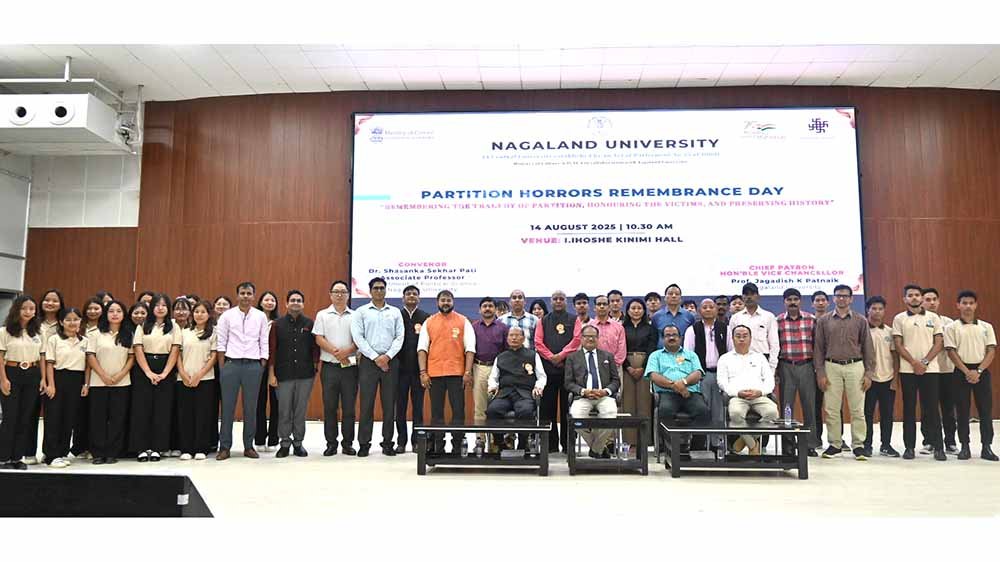Nagaland University (NU) observed Partition Horrors Remembrance Day on August 14 with a symposium reflecting on the historical, economic, social, and cultural impact of Partition.
Delivering the keynote address, Vice-Chancellor Prof. J.K. Patnaik said Partition was a deliberate British project aimed at erasing the idea of Bharatiyata.
He stated that the “Hindu versus Muslim” narrative was never part of India’s ethos, but was promoted through the “Two-State Solution” to divide the subcontinent. He added that the loss of knowledge and power weakened India’s ability to counter global challenges.
Prof. M.K. Sinha, Department of Economics, highlighted the economic burden of Partition, noting that India’s GDP per capita dropped significantly post-1947 due to loss of fertile land, labour shortages, and industrial stagnation. He also pointed out that loans given to Pakistan were never returned.
Dr. E. Benrithung Patton, Associate Professor, Fazl Ali College, spoke on the social impact of the Radcliffe Line, calling for an “amalgamation of hearts” beyond geographical divisions. “The language of humanity speaks louder than the language of borders,” he said.
Dr. Likhase Sangtam, Department of Political Science, shared a Naga perspective, stating that the trauma lay in the neglect of Naga identity and unresolved questions of self-determination. He stressed that remembrance must include all wounds and uphold diversity.
Dr. Sentikumla, Department of Law, addressed the gendered impact of Partition, noting that many women faced violence and rejection, even after being rescued, due to societal notions of honour.
Chairperson of the inaugural session, Dr. Suraj Beri, Department of Sociology, said the horrors of Partition were rooted in the imposition of the Westphalian nation-state model, which transformed nations into rigid states.
Dr. Shasanka Sekhar Pati, Department of Political Science, delivered the welcome address, tracing the legacy of British colonial destruction across regions, and emphasized unity in diversity as the foundation for future progress.
A documentary titled “1947: Children of Partition” was screened during the programme.
The symposium concluded with remarks by Dr. Deepak Bhaskar, Department of Political Science, who stated that the essence of human civilization lies in unity, not division.
‘Partition Horrors Remembrance Day’ observed at NU
DIMAPUR

